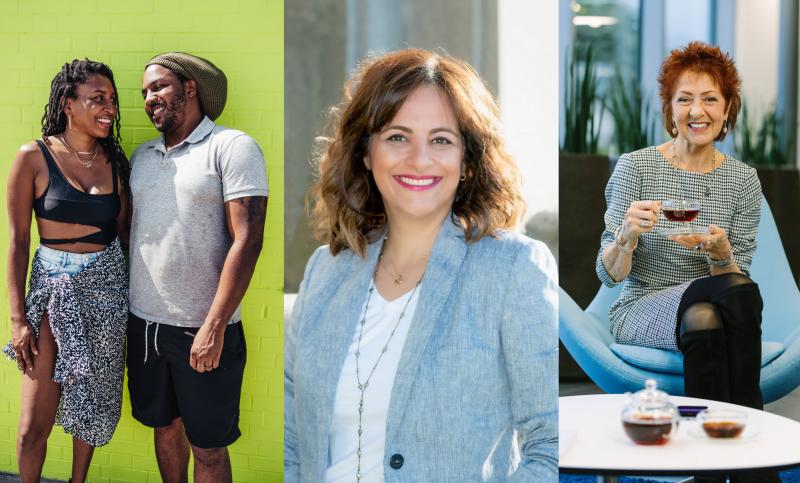Today’s “it” generation is Generation Z, who are currently ages 9 to 24. They are the ones whose wants and needs are likely to shape the next era of tea culture and consumerism, according to some experts.
Each passing year, more people in this age group are transitioning to adulthood, when they are faced with countless decisions about how to spend the income they are now earning. A common trait among Gen Zers is their knack for thriftiness, but tea is an affordable luxury. And compounded with Gen Z’s lesser alcohol consumption compared with prior generations, there’s a lot of potential for tea to become their drink of choice. But first the tea industry will need to understand what Gen Z wants and rise to the challenge of providing it.
Experts from three Western tea-drinking countries have shared their insight on how to engage and accommodate the next generation of tea enthusiasts. They all agree that it seems Gen Z consumers enjoy having a variety of tea options, and they’ve noticed the popularity of herbal, fruit and flavored teas among them. But they each bring unique perspectives to the conversation as well.

Perspective from the United States
Brooklyn Tea is known for its creative and effective social media strategy, which is an essential tool for any brand that wants to engage young adults. The company keeps its Instagram and TikTok profiles active, but it takes more than that to become a brand that young people trust and enjoy.
Jamila Wright, who founded Brooklyn Tea with her husband, Alfonso Wright – both of whom presented at the World Tea Conference + Expo – said it’s important for tea companies to authentically include members of Gen Z and defer to them to learn about their wants and needs. They are the most diverse generation in U.S. history, but the generations who currently hold the most power in the tea industry need to avoid tokenizing Gen Z’s patchwork of identities.
“The goal for companies is not to figure out how to manufacture representation,” Wright said. “It is to have diverse stakeholders already present in a business so their influence is organically felt when making big or small choices.”
Wright said 90 percent of Brooklyn Tea’s employees belong to Gen Z. They are invited to contribute to business decisions such as what kinds of music to play in the stores, what kinds of content to create for social media, and how to design certain components of the brand’s visual identity.
“They are our baristas and our business partners,” Wright said.
Perspective from Canada
Last year, the Tea and Herbal Association of Canada (THAC) conducted a survey of adults between ages 18 and 34 and found “53 percent of young Canadians were already drinking tea as part of their daily lifestyle choice,” said Shabnam Weber, president of the organization. Weber said she feels optimistic about this statistic, while also knowing there is a lot of opportunity for more young adults to become interested in tea.
Tea’s health benefits are one of the main draws for young consumers. Another THAC survey conducted in 2020 found that many consumers, especially young adults, turned to tea as a source of relaxation and mental health support during the pandemic.
“I believe young people in Canada have a heightened interest in tea,” Weber said. “They inherently know and understand that tea is part of a healthy lifestyle choice far more than previous generations.”
Perspective from the United Kingdom
For centuries, black tea with milk and sugar has been the U.K.’s daily staple. But that is changing now, as young adults in the U.K. are more likely to choose green tea, white tea or matcha, according to Jane Pettigrew, director of studies at the UK Tea Academy.
“Black tea with milk is simply not on the radar of most young people,” Pettigrew said. “They are often inspired by habits learnt from living with parents, or for ease and speed of brewing. But they tend not to use milk or sugar.”
Pettigrew also said since the mid-2000s, many diverse tea experts from producing countries have started up small tea companies in the U.K. This has allowed people growing up in this era to be exposed to different types of tea and different cultural practices surrounding tea, which contributes to the demand among young people for transparency about where their tea comes from and how it is produced.
“They care about the communities who pick and produce the teas, and the environment in the different places of origin,” Pettigrew said. “They like back stories about the products they buy.”
This interest aligns with the broad pattern of Gen Z’s concern for corporate social responsibility.
Cat Kerr has been involved with local cafes in Orlando, Fla., as a public relations manager and barista since 2018. She writes about food, tea and culture. She’s also a contributor to Questex’s World Tea News and Bar & Restaurant.
Plan to Attend or Participate in the
World Tea Conference + Expo, March 27-29, 2023
To learn about other key developments, trends, issues, hot topics and products within the global tea community, plan to attend the World Tea Conference + Expo, March 27-29, 2023 in Las Vegas, co-located with Bar & Restaurant Expo. Visit WorldTeaExpo.com.
To book your sponsorship or exhibit space at the World Tea Conference + Expo, or to enquire about advertising and sponsorship opportunities at World Tea News, contact:
Ellainy Karaboitis-Christopoulos
Business Development Manager, Questex
Phone: +1-212-895-8493
Email: [email protected]
Also, be sure to stay connected with the World Tea Conference + Expo on social media for details and insights about the event. Follow us on Twitter, Facebook, Instagram and LinkedIn.
